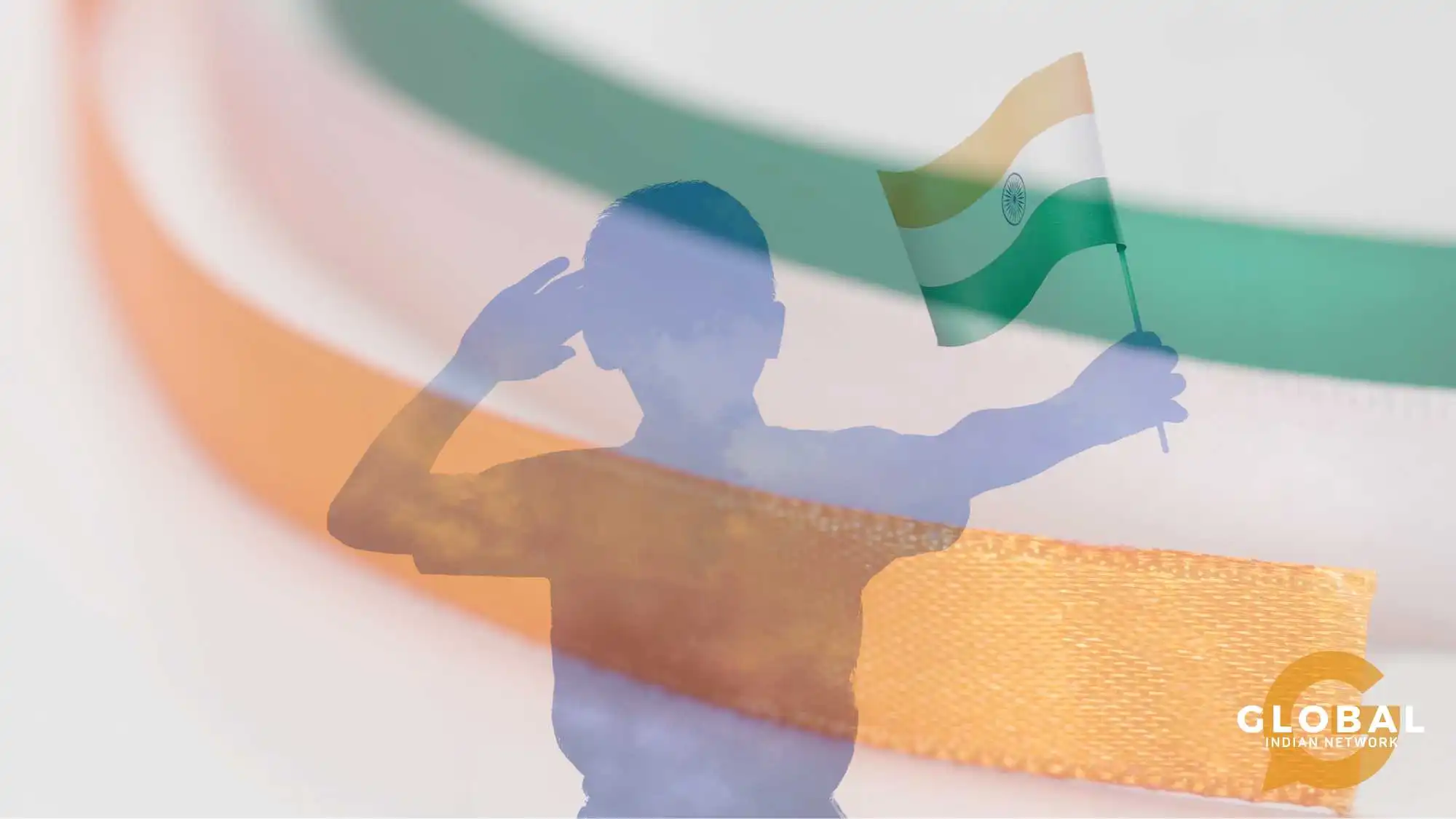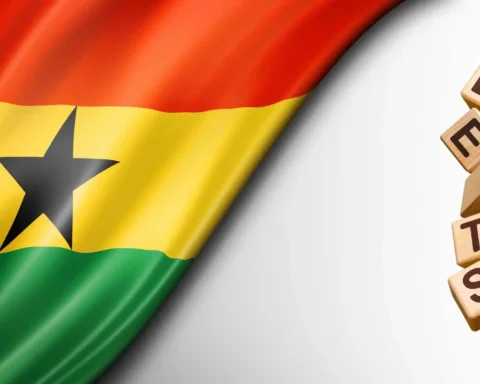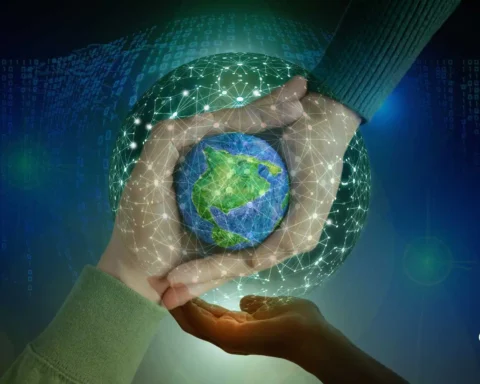In an era characterized by unprecedented global connectivity, India grapples with intricate challenges to its identity in the face of rapid globalization. The diverse cultural, religious, and political landscape of the nation weaves a complex tapestry that demands a nuanced understanding of the forces at play. This article delves into the challenges to Indian identity.
Table of Contents
Understanding Indian Identity
Indian identity is a complex and multifaceted concept encompassing diverse cultural, religious, linguistic, and historical elements. It reflects the unique amalgamation of various traditions, beliefs, and practices that have evolved over centuries on the Indian subcontinent. Here are five key elements that contribute to the formation of national identity in India:
Cultural Diversity and Heritage
India's rich cultural diversity is a fundamental element of its national identity. With a history dating back thousands of years, the country has been a melting pot of various cultures, traditions, languages, and art forms. The coexistence of diverse cultural expressions, such as classical dance forms, music, literature, and folk traditions, forms the cultural mosaic of India. The influence of ancient civilizations, empires, and dynasties has contributed to the nation's vibrant cultural heritage.
Religious Pluralism
India is home to several major religions, including Hinduism, Islam, Christianity, Sikhism, Buddhism, and Jainism, Zoroastrianism, Judaism, among others. The coexistence and interaction of diverse religious communities contribute significantly to India's national identity. Festivals, rituals, and places of worship represent the religious diversity of the nation. The principles of religious tolerance and acceptance form a crucial aspect of India's identity, emphasizing unity amid diversity.
Political Unity and Democracy
India's political identity is shaped by its commitment to democracy, with a diverse and participative political landscape. The establishment of a democratic republic after gaining independence in 1947 has been a defining element of India's national identity. The Constitution, which guarantees fundamental rights and equality, symbolizes the commitment to political unity despite linguistic, cultural, and religious differences. The democratic process, including elections and governance, reinforces the idea of a united nation.
Historical Narratives and Shared Memories
Shared historical narratives and collective memories play a crucial role in shaping national identity. India's struggle for independence from British colonial rule, led by iconic figures like Mahatma Gandhi, Jawaharlal Nehru, and others, is a central theme in the nation's historical narrative. The sacrifices made during the independence movement create a sense of shared history and national pride. Historical monuments, such as the Taj Mahal and Red Fort, serve as reminders of India's rich past and contribute to a collective identity.
Language and Linguistic Unity
Language is a significant element in shaping India's national identity. While India is linguistically diverse, adopting Hindi as one of the official languages, alongside English, symbolizes linguistic unity. Linguistic diversity is acknowledged through the recognition of multiple languages in different states. Efforts to preserve and promote regional languages contribute to a sense of linguistic identity within the broader framework of the Indian nation.
Globalization and Indian Identity
As India integrates further into the globalized world, the question of national identity becomes increasingly complex. The notion of "Indian identity" is not static; it evolves with the changing dynamics of a world where borders are porous and cultures intermingle. The challenge lies in preserving the essence of Indian identity while embracing the benefits of global interaction.
Religious Identity Amidst Global Flux
Religious identity, a cornerstone of Indian society, faces unique challenges in a globalized context. The coexistence of various religious communities has long been a defining characteristic of India. However, the rise of global forces often amplifies religious differences. The Indian Muslim communities, in particular, grapple with questions of identity in a world where religious lines are increasingly emphasized.
Religious Community Dynamics
Indian Muslims, constituting a significant religious community, find themselves at the intersection of local and global forces. The narrative surrounding their identity is shaped not only by their religious beliefs but also by the socio-political environment. The Bharatiya Janata Party (BJP), with its emphasis on Hindu identity, has contributed to a political landscape where religious communities navigate complex dynamics.
Political Parties and Religious Lines
The role of political parties in shaping religious identities cannot be overstated. The BJP's push for Hindu majoritarianism has stirred debates about the inclusive nature of Indian politics. The tussle between nationalist ideology and a secular political framework is evident, influencing how Indian Muslims perceive their place in the nation's identity narrative.
Major Religions and National Unity
India, home to major religions like Hinduism, Islam, Christianity, Sikhism, Buddhism, Jainism, Zoroastrianism, and Judaism, is a testament to religious diversity. However, ensuring national unity amid religious diversity becomes a significant challenge in a globalized world. Striking a balance between celebrating religious plurality and fostering a cohesive national identity requires delicate navigation.
Nationalist Ideologies, Social Norms, and Identity Documents
The nationalist ideologies that have gained prominence in recent years often project a singular vision of Indian identity. This challenges the inclusivity that has been a hallmark of the country's ethos. As political narratives emphasize a specific cultural identity, the challenge lies in reconciling these ideologies with the diverse tapestry inherent to India.
Social norms, deeply rooted in historical contexts, shape the demographic characteristics of the nation. The coexistence of traditions and modernity, rural and urban, poses challenges to a uniform national identity. The diversity within the country necessitates acknowledging and celebrating these differences while fostering a sense of collective identity.
The role of identity documents in shaping individual and collective identity cannot be overlooked. The Aadhaar Card, issued by the Unique Identification Authority of India, serves as a unique identification document. The Voter ID Card, issued by the Election Commission of India, validates an individual's eligibility to vote.
An Indian Passport, issued by the Ministry of External Affairs, is a travel document for international journeys. The ABHA Card, issued by the National Health Agency, facilitates access to healthcare services. The OCI Card and PIO Card, issued by the Ministry of External Affairs, cater to overseas Indians. The PAN Card, issued by the Income Tax Department, is essential for financial transactions. Driving licenses issued by state governments regulate vehicle operation. The Ration Card, issued by the Government of India, facilitates access to subsidized goods. Identity Certificates are for non-citizens or stateless individuals, and Birth Certificates issued by the Registry of Births and Deaths validate one's birth details as per legal provisions.
The Central Government's initiatives and policies influence how individuals are identified and how they perceive their place in the national narrative. The nuances of identity, often lost in bureaucratic processes, warrant careful consideration in a globalized context.
The Indian Diaspora
The Indian diaspora, scattered across the globe, forms a unique bridge between the homeland and the globalized world. Their identity is shaped not only by their Indian roots but also by the diverse cultures they are immersed in. Nurturing a connection with the Indian diaspora becomes crucial in fostering a globalized yet cohesive Indian identity.
Indian Americans constitute the second-largest immigrant group in the United States, totalling 4.2 million people, as per the 2018 American Community Survey conducted by the U.S. Census Bureau. Among this population, a significant portion, 38 percent, are not U.S. citizens, while 2.6 million individuals are, with 1.4 million being naturalized citizens and 1.2 million being born in the United States. This study draws from the IAAS (Indian American Attitudes Survey) of Oxford University Press, an original online survey conducted by YouGov from September 1 to September 20, 2020, with a sample size of 1,200 Indian American U.S. residents. The survey encompasses both citizens and non-U.S. citizens, with the former category constituting 77 percent of the respondents.
Factors Affecting National Identity
Several factors contribute to shaping the national identity in India. Historical events, particularly the struggle for independence led by iconic figures like Mahatma Gandhi, play a crucial role in fostering a shared narrative and sense of pride among Indians. Cultural diversity, reflected in languages, traditions, and art forms, influences the collective identity, emphasizing unity amid diversity.
Political structures and democratic principles contribute to a united and inclusive nation. Economic development and social progress also impact national identity by shaping citizens' perceptions of their shared future. Educational systems and media play a role in disseminating national values and symbols.
Globalization, while connecting India to the world, also poses challenges to maintaining a distinct national identity. Overall, the dynamic interplay of historical, cultural, political, economic, and global factors collectively shapes the multifaceted national identity in India.
Importance of National Identity
The importance of national identity in India lies in fostering a cohesive sense of unity among its diverse populace. With its rich tapestry of cultures, religions, and languages, India relies on a shared national identity to bind its citizens.
This collective sense of belonging transcends regional, linguistic, and religious differences, providing a foundation for social harmony and mutual understanding. National identity serves as a unifying force during celebrations, such as festivals and national events, and becomes a source of resilience in times of challenge. It underpins the democratic principles that guide the nation, emphasizing the importance of unity in diversity.
Additionally, a strong national identity instils a sense of pride, contributing to a positive national image on the global stage and fostering a commitment to shared values and aspirations for the nation's progress and development.
Challenges of Indian Identity
The challenges to Indian identity are multifaceted and ongoing. Yet, within these very challenges lies the potential for a richer, more nuanced understanding of what it means to be Indian.
Diversity
One key challenge lies in the sheer heterogeneity of the Indian population. With over 1.3 billion people speaking 22 official languages and adhering to countless religions and regional customs, finding a single unifying principle becomes an elusive quest. From the snow-capped peaks of the Himalayas to the tropical shores of Kerala, each region whispers a distinct narrative, enriching the Indian identity while blurring its edges.
History
Another challenge lies in the weight of history, both glorious and troubled. The legacies of ancient empires, colonial rule, and post-independence struggles each imprint their mark on the contemporary understanding of Indianness. Navigating this complex historical landscape, reconciling triumphs with traumas, and forging a future identity that honours the past without being shackled by it remains a continuous process.
Globalization
Furthermore, the rise of globalization has brought with it a potent mix of alluring and disruptive influences. Western cultures, technology, and economic models infiltrate everyday life, often at odds with traditional values and ways of life. Striking a balance between embracing the dynamism of the global stage and preserving the unique essence of Indian culture poses a delicate challenge.
Inequality
Finally, the issue of social inequalities casts a long shadow on the construct of Indian identity. Caste, class, and gender disparities fragment the national narrative, highlighting the uneven distribution of opportunities and privileges. To claim a genuinely inclusive and meaningful Indian identity, addressing these internal divisions and striving towards a more equitable society where every individual feels truly represented is crucial.
Conclusion
As India navigates the challenges to its identity in a globalized world, the intricate interplay of national, religious, and global forces comes to the forefront. Preserving the essence of Indian identity requires a delicate balance between celebrating diversity and fostering a cohesive narrative. The challenges faced by Indian Muslims, the influence of political parties, the complexities of nationalist ideologies, and the role of global dimensions like the Indian diaspora collectively shape the evolving identity of the nation.
FAQs
What are the elements of national identity?
National Flag, National Anthem, National Song, State Emblem, National Bird, and the National Animal are the elements of national identity.
What is the symbol of the national identity of India?
India's national symbols hold profound significance, deeply ingrained in the country's identity and heritage. They evoke a sense of pride and patriotism in Indians worldwide, cutting across diverse demographics and backgrounds. These symbols include the National Flag (Tiranga), National Anthem (Jana-gana-mana), National Song (Vande Mataram), State Emblem (derived from the Sarnath Lion Capital of Ashoka), National Bird (Indian peacock), and National Animal (tiger).
What is the main religion in India?
Hinduism is one of the main religions in India and is practised by about 79.8% of the population. Its ancient traditions, vibrant festivals, and spiritual philosophies deeply colour the landscape and cultural fabric of the nation.











[…] ALSO READ: Challenges to Indian Identity in a Globalized World […]
[…] of Western and Indian cultures led to friction and debates about cultural heritage and identity. Critics argued that Western influence threatened the sanctity of Indian traditions, while […]